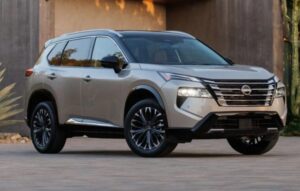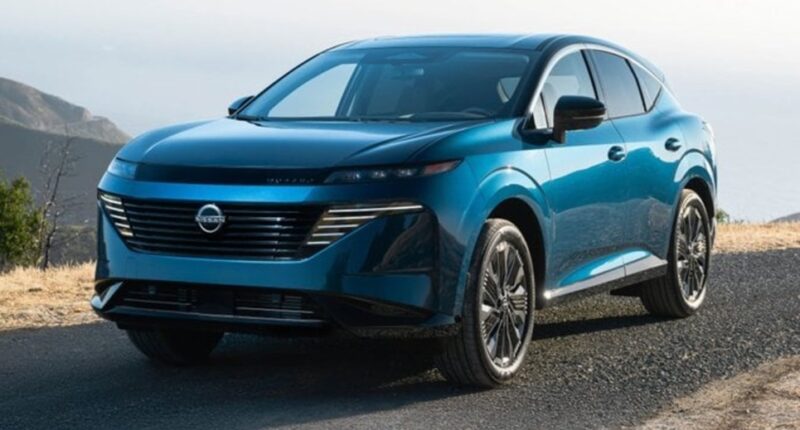Nissan has long been one of the most recognized names in the automotive industry. From the affordable and fuel-efficient Nissan Altima to the groundbreaking Nissan Leaf, a trailblazer in the electric vehicle market, Nissan has earned its place as a major global automaker. However, as with many companies in the automotive industry, Nissan has faced mounting challenges over the last few years, leading some to question its survival. The question on the minds of many consumers, investors, and industry analysts is, is Nissan going out of business?
Introduction: Nissan’s Position in a Changing Automotive World
In a world where the automotive industry is rapidly evolving, every major automaker must adjust to new challenges and opportunities. Technological advancements, such as electric vehicles (EVs), autonomous driving, and green technologies, have fundamentally transformed the way consumers view automobiles and their environmental impact. At the same time, these changes have created intense competition among manufacturers, both established players like Nissan and new entrants to the market.
The question of whether Nissan is going out of business has emerged due to the company’s recent struggles. Nissan has faced declining profits, leadership upheaval, and increased competition, particularly from companies like Tesla and other new electric vehicle manufacturers. In this article, we will analyze the key factors that have led to these challenges and explore the various efforts that Nissan has made to recover and redefine its future.
Nissan’s History and Rise to Prominence
Before we dive into the company’s current situation, it’s important to understand the legacy that Nissan has built over the years. Founded in 1933 as the Jidosha Seizo Co., Nissan has grown into one of the largest car manufacturers in the world. Known for its reliability, fuel efficiency, and technological innovation, Nissan became a household name in markets such as Japan, North America, and Europe. The company’s ability to deliver affordable and high-quality vehicles like the Nissan Sentra, Nissan Rogue, and Nissan Titan helped it become a trusted brand.
One of the company’s most notable innovations was the introduction of the Nissan Leaf in 2010, one of the world’s first mass-market electric vehicles. The Nissan Leaf solidified the company’s position as a leader in the electric car market, paving the way for future electric models and contributing to its reputation as a forward-thinking company.
Despite these achievements, Nissan has faced increasing challenges in the last decade. As the automotive industry experienced rapid shifts, particularly with the rise of electric vehicles, Nissan struggled to maintain its previous momentum. The pressing question remains, is Nissan going out of business?
The Declining Financial Performance of Nissan

One of the central issues contributing to the question of whether Nissan is going out of business is the company’s recent financial struggles. Over the last few years, Nissan has experienced a series of financial setbacks, with declining profits and revenue. In fact, the company reported a significant drop in profits in 2019, with an operating loss of ¥40 billion (around $380 million USD). This loss was a stark contrast to its previous years of profitability.
Several factors have contributed to Nissan’s financial difficulties:
1. Declining Global Sales
One of the main reasons for Nissan’s financial struggles has been its declining sales in key markets. As the company’s most popular vehicles, such as sedans, have seen decreased demand, it has struggled to maintain its sales volume in markets like the United States and Europe. The global demand for sedans, especially in North America, has significantly decreased in favor of SUVs and trucks. Nissan has been slow to adapt its portfolio to meet these shifting preferences.
2. Impact of the Ghosn Scandal
In 2018, the arrest of Carlos Ghosn, the former CEO of Nissan, shocked the automotive world. Ghosn was accused of financial misconduct, including underreporting his income and using company funds for personal expenses. His arrest and subsequent ousting from the company left a significant void in Nissan’s leadership. The scandal tarnished the company’s image and contributed to a sense of instability, further exacerbating its financial troubles. The leadership vacuum that followed took a toll on decision-making and long-term strategy, leading to further uncertainty about the company’s future.
3. Increased Competition in the Electric Vehicle Market
As the global automotive market shifts toward electric vehicles, Nissan’s dominance in the EV market has been challenged by new players. Tesla, the leader in the electric vehicle space, has expanded its market share significantly. Tesla’s vehicles are widely regarded as being more technologically advanced, with longer driving ranges and faster charging capabilities. Additionally, traditional automakers such as Volkswagen, GM, and Ford have ramped up their electric vehicle offerings, creating even greater competition for Nissan. With more automakers entering the EV market, Nissan faces increasing pressure to innovate and differentiate itself.
4. The Impact of the COVID-19 Pandemic
Like many other companies, Nissan was significantly impacted by the COVID-19 pandemic. The global economic slowdown, disruptions to manufacturing, and the suspension of vehicle production all took a toll on Nissan’s sales and bottom line. In the midst of the pandemic, the company was forced to make difficult decisions, including temporarily closing plants and laying off employees, further contributing to the question: is Nissan going out of business?
The Future of Nissan: Can the Company Recover?
Despite the company’s financial struggles, it is premature to say that Nissan is going out of business. The company has taken several steps to address its challenges and position itself for recovery. While the road to recovery is long, there are several key areas where Nissan is focusing its efforts to rebuild and ensure its future success.
1. Nissan’s Restructuring Plan: Nissan Next
To address its financial challenges, Nissan introduced its Nissan Next restructuring plan. This strategy involves a comprehensive review of the company’s operations, cost-cutting measures, and efforts to streamline production. The goal of Nissan Next is to focus on the company’s most profitable markets and models while scaling back on underperforming segments.
As part of the Nissan Next plan, Nissan has reduced its global production capacity and is shifting its focus toward key models, such as SUVs and trucks, which have a higher profit margin. Additionally, Nissan is planning to cut costs by improving manufacturing efficiency and reducing operational overhead.
2. Increased Investment in Electric Vehicles
Nissan recognizes the growing importance of electric vehicles in the global automotive market and has committed to expanding its EV portfolio. The company plans to introduce several new electric models over the next few years, including an electric crossover and a new version of the Nissan Leaf. Nissan’s leadership has stated that the company intends to be a key player in the electric vehicle market, investing heavily in research and development to enhance battery technology and improve vehicle performance.
3. Strategic Partnerships and Alliances
To strengthen its position, Nissan has formed strategic alliances with other automakers, particularly under the Renault-Nissan-Mitsubishi Alliance. This partnership allows the companies to share resources, reduce costs, and develop new technologies together. By collaborating with Renault and Mitsubishi, Nissan aims to accelerate its development of electric vehicles and other innovative technologies, such as autonomous driving and artificial intelligence.
4. A Focus on Sustainability and Green Technologies
In addition to its electric vehicle efforts, Nissan is also focusing on sustainability. As environmental regulations tighten worldwide, automakers are under increasing pressure to reduce their carbon footprints and develop more eco-friendly vehicles. Nissan has committed to achieving carbon neutrality by 2050 and is working to improve the sustainability of its manufacturing processes. This includes investing in renewable energy and reducing emissions across the supply chain.
Conclusion: Is Nissan Going Out of Business?
The question of whether Nissan is going out of business is one that remains uncertain. While the company has faced significant challenges in recent years, including declining sales, leadership changes, and increased competition, Nissan is taking proactive steps to address these issues. Through its Nissan Next restructuring plan, increased focus on electric vehicles, and strategic partnerships, the company is working hard to ensure its future success.
Although Nissan is not out of the woods yet, the company’s long-standing legacy, commitment to innovation, and ability to adapt to changing market conditions suggest that it is far from going out of business. With the right strategies and continued investment in new technologies, Nissan can potentially regain its competitive edge and thrive in the rapidly changing automotive landscape.
In conclusion, while Nissan is going through significant challenges, it is not destined for failure. The company’s proactive steps to adapt to the future of the automotive industry, especially in the areas of electric vehicles and sustainability, provide a promising outlook for its long-term survival and success.
Read more like this: What Must an Entrepreneur Assume When Starting a Business?










